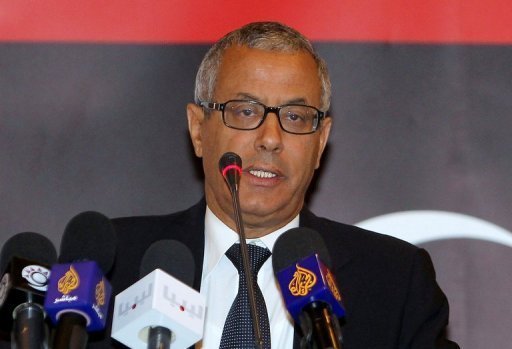SOUTHAMPTON, ENGLAND: Once the crowds were in the streets in Tehran, one could, if one knew the script, begin the countdown: if today there are mass protests, tomorrow there will be threats of retaliation in the name of “national security. By day three, we will see journalists imprisoned and media shut down; day four, bloody reprisals against protesters by secret police; day five, arrests of key opposition figures. Sure enough, right on schedule, each of those steps was set in motion in Iran, within the space of a week.
These same 10 steps occurred in Thailand in 2006 – in 10 days, and in seven days in Myanmar a year later. The script is so well known by now among the world’s would-be dictators that it can take less than a week to lock down a country.
None of this should surprise anyone anymore. We should understand that this time-tested script for establishing or enforcing a dictatorship exists – but so does a counter-strategy for opening up a closed society. When a would-be dictator – anywhere, any time, on the right or the left – wants to close an open society or initiate a crackdown against a democracy movement, he follows 10 classic steps: invoke a threat, create secret prisons, develop a paramilitary force, establish a surveillance apparatus, arbitrarily detain citizens, infiltrate citizen groups, target key individuals, go after journalists, call criticism “treason, and subvert the rule of law.
Once these steps are put in place, it is extremely difficult for a pro-democracy movement to survive – but not impossible if counter-pressure is applied correctly. History shows again and again – throughout the modern era and around the world – that people do indeed have some powerful tools to reestablish an open society if they were willing to use them.
The counter-script for establishing or restoring pro-democratic conditions consists of more mass protest; the appearance and display of resistance symbols; the emergence of enough spokespeople throughout society that all of them cannot be arrested at once; overt civil and covert disobedience, at every level of society, that brings the economy to a halt; withdrawal of support by lawyers and judges for the regime’s decisions; international sanctions tied to human rights and clean elections; the refusal – tricky but not unattainable – of many soldiers and police to fire at unarmed citizens; and, finally, when the rule of law is reestablished, serious prosecutions of the defeated regime’s ringleaders.
When we see footage of nonviolent protesters being brutally beaten by police and militia members, it is painful to deliver the message that, if history is a guide, continued street protest will make the difference between Iran being like Myanmar or, possibly, like Czechoslovakia. Time and again, when mass street protest has been sustained for more than a week or two, a regime – even one that has begun beating and arresting protesters – eventually finds it practically and psychologically difficult to sustain its hold.
Street protest, if it can sustain itself for more than that crucial first week, has an effect that is both tactical and emotional; mass protest during the French Revolution made it clear to the courtiers that this rebellion would be too profound to quell in the usual manner; street protests in the American colonies, in the face of arrest or worse, made the colonies ungovernable even before George III waged a costly, unpopular war. In Estonia in the 1980s, the small, illegal protests that surrounded the public singing of the banned national anthem grew, and Estonians were emboldened as their numbers swelled by the thousands daily.
In the United States, street protests helped bring the Vietnam war to an end, and the mass protests of the civil rights movement showed that, as Martin Luther King, Jr. put it, “business as usual could no longer continue. According to King, disruptive mass protest exposes the tension that has been hidden or ignored, so that it can be addressed.
Iran’s citizens – and all people longing to resist a tyrannical government or to protest in an established democracy – should bear that lesson in mind. Protest that works must disrupt business as usual and, ideally, stop traffic. Iranian citizens have shown great courage, and they would do well to continue pouring into the street and sitting down, lying down, or standing still. Unless a regime is willing to start machine-gunning its citizens, peaceful, steady, long-term disruption of “business as usual always works.
What the West can do is apply pressure on Iran – and on other governments in the future – to assure and account for the safety of protesters. Natan Sharansky said that this tactic – the West tracking and demanding accountability for the treatment of individual internal dissenters – helped break up the Soviet Union. In this crisis, the US president should form a united front with human rights groups, which can advise him exactly how to follow, sustain, and support those Iranians who have been or may yet be arrested, or worse.
Barack Obama says that America “stands with those who support free assembly. That will be welcome news to people living under dictatorial regimes installed and propped up by the US, and to the opposition leaders and journalists languishing in US-supported prisons in those countries for having engaged in just such protest. But it is a start. What a real revolution it would be if the Western democracies did indeed begin to frame their foreign policies with human rights and democratic processes as their benchmark.
Naomi Wolf is the author of Give Me Liberty: A Handbook for American Revolutionaries. This commentary is published by Daily News Egypt in collaboration with Project Syndicate, (www.project-syndicate.org).



